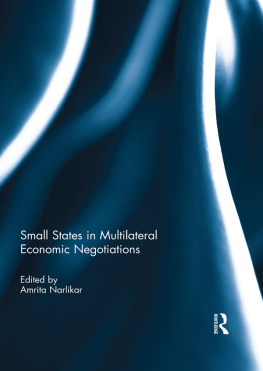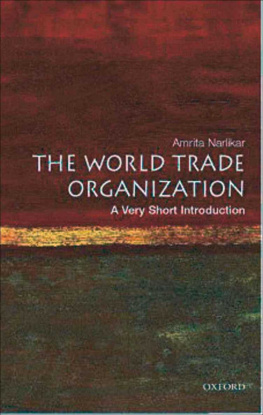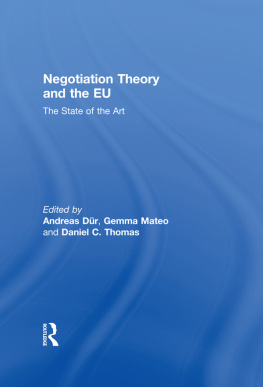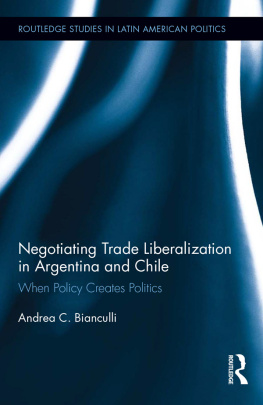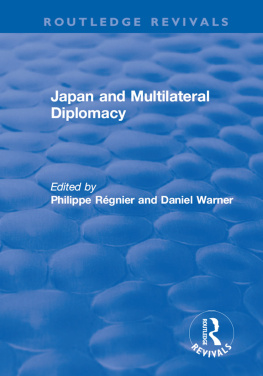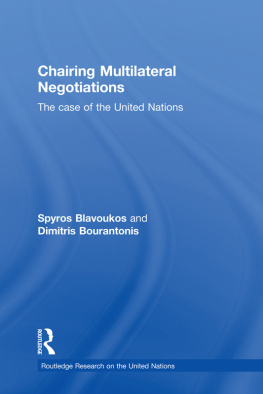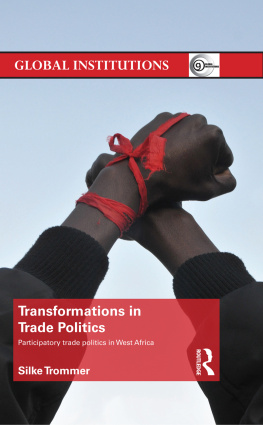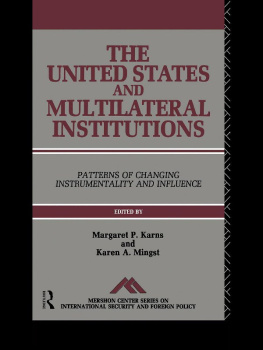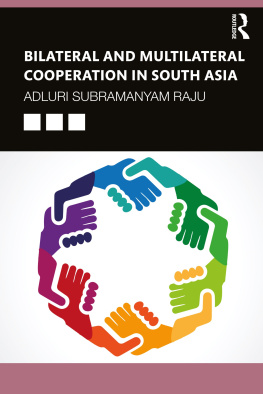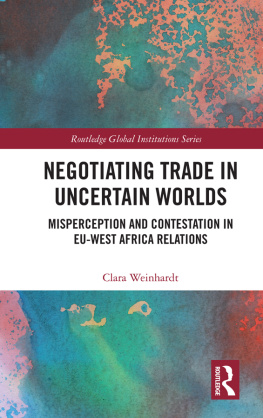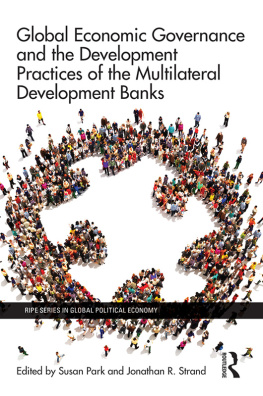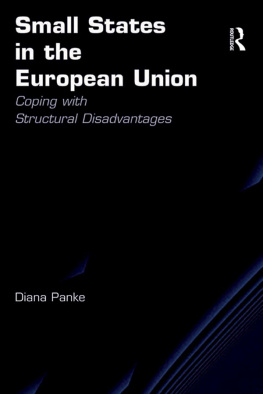Small States in Multilateral Economic Negotiations
This book addresses the puzzle, Can David take on Goliath in multilateral economic negotiations, and if so, then under what conditions? The question of how the weak bargain with the strong in international politics is exciting theoretically and empirically. In a world of ever-increasing interdependence, and also a time of economic crisis, it acquires even greater significance.
With the help of issue-specific case studies, the volume offers new insights into the vulnerabilities that small states face in multilateral economic negotiations, and also mechanisms whereby these weaknesses might be overcome and even used as an advantage. The attention that this volume pays to questions of smallness and negotiation allows it to address a long-standing problem of international politics. The case studies, which cover monetary, financial, trade, and climate change negotiations, ensure a unique and valuable topicality to the volume.
This book was published as a special issue of The Round Table.
Amrita Narlikar is Reader in International Political Economy and Director of the Centre for Rising Powers at the University of Cambridge. Her latest books include The Oxford Handbook on the WTO (co-edited), Oxford University Press, 2012, and New Powers: How to become one and how to manage them, Columbia University Press, 2010.
Small States in Multilateral Economic Negotiations
Edited by
Amrita Narlikar
First published 2014
by Routledge
2 Park Square, Milton Park, Abingdon, Oxon, OX14 4RN
Simultaneously published in the USA and Canada
by Routledge
711 Third Avenue, New York, NY 10017
Routledge is an imprint of the Taylor & Francis Group, an informa business
2014 The Round Table Ltd.
This book is a reproduction of The Round Table, vol. 100 (issue 413). The Publisher requests to those authors who may be citing this book to state, also, the bibliographical details of the special issue on which the book was based.
All rights reserved. No part of this book may be reprinted or reproduced or utilised in any form or by any electronic, mechanical, or other means, now known or hereafter invented, including photocopying and recording, or in any information storage or retrieval system, without permission in writing from the publishers.
Trademark notice: Product or corporate names may be trademarks or registered trademarks, and are used only for identification and explanation without intent to infringe.
British Library Cataloguing in Publication Data
A catalogue record for this book is available from the British Library
ISBN13: 978-0-415-83537-4
Typeset in Times New Roman
by Taylor & Francis Books
Publishers Note
The publisher would like to make readers aware that the chapters in this book may be referred to as articles as they are identical to the articles published in the special issue. The publisher accepts responsibility for any inconsistencies that may have arisen in the course of preparing this volume for print.
Contents
Amrita Narlikar
Paul Sutton
Andr Broome
Mark P. Hampton and John Christensen
Brendan Vickers
Richard Benwell
The chapters in this book were originally published in The Round Table, volume 100, issue 413 (April 2011). When citing this material, please use the original page numbering for each article, as follows:
Introduction: Small States in Multilateral Economic Negotiations
Amrita Narlikar
The Round Table, volume 100, issue 413 (April 2011) pp. 135140
The Concept of Small States in the International Political Economy
Paul Sutton
The Round Table, volume 100, issue 413 (April 2011) pp. 141154
Negotiating Crisis: The IMF and Disaster Capitalism in Small States
Andr Broome
The Round Table, volume 100, issue 413 (April 2011) pp. 155168
Looking for Plan B: What Next for Island Hosts of Offshore Finance?
Mark P. Hampton and John Christensen
The Round Table, volume 100, issue 413 (April 2011) pp. 169182
Between a Rock and a Hard Place: Small States in the EUSADC EPA Negotiations
Brendan Vickers
The Round Table, volume 100, issue 413 (April 2011) pp. 183198
The Canaries in the Coalmine: Small States as Climate Change Champions
Richard Benwell
The Round Table, volume 100, issue 413 (April 2011) pp. 199212
Introduction: Small States in Multilateral
Economic Negotiations
This journal has a long-standing reputation for publishing pioneering, state-of-the-art research on small states. So it seemed only appropriate that in the series of conferences and workshops that have been organised to commemorate The Round Tables centenary, the first was on Small States in International Economic Negotiations. The workshop was held in November 2009, sponsored by the journal and hosted by the University of Cambridge, and this special issue is a product of the debate that took place there. Its aim is to take stock of research on small states thus far, and focus and develop it further. The central puzzle driving this special issue is how some of the smallest players negotiate in the international political economy, or how the weak bargain with the strong in multilateral economic negotiations.
For the small and vulnerable attempting to influence and secure agreements on favourable (or at least less unfavourable) terms, an analysis of their negotiation strategies is crucial to understanding what works and what does not in their dealings with much larger and stronger counterparts. But the question of their negotiation behaviour is just as important from a theoretical perspective: for scholars of international bargaining and negotiation, small states present a hard test case of whether smart negotiating strategies can make a difference. In this special issue, case studies are drawn on from a diverse set of regimes, ranging over international monetary and financial regimes, trade and climate change, to address collectively the question: Can David successfully take on Goliath in international politics, and if so, then under what conditions?
The four case studies in this collection are preceded by a conceptual essay by Paul Sutton, which addresses the contested issue of the definition of small states. Suttons paper demonstrates how matters of categorisation and nomenclature are fundamentally political, subject to negotiation, and with potentially profound distributive consequences. Key actors in this debate are not just the small states themselves, but several international organisations. These include the Commonwealth Secretariat and the World Bank (which Sutton identifies as the champions of small states), but also others such as the World Trade Organisation (WTO) and the United Nations Conference on Trade and Development (UNCTAD). Sutton points to the difficulties of defining small, but concludes by honing in on the two criteria employed by the Commonwealth Secretariat and the World Bank: population size (1.5 million or below in most cases) and vulnerability. He writes, vulnerability should be seen as the core characteristic of small states in the contemporary international political economy. It sets them apart from most other states and establishes an agenda in many ways unique to their needs.

